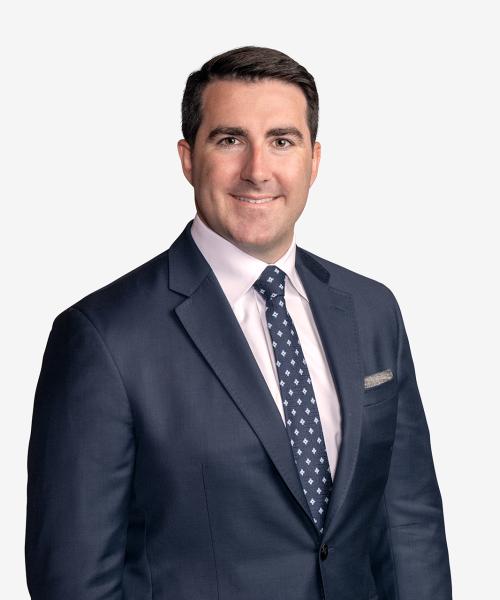HHS Announces Formation of FCA Working Group
HHS Announces Formation of FCA Working Group
On December 4, 2020, the US Department of Health and Human Services (HHS) announced that it is creating a False Claims Act Working Group to enhance the partnership between DOJ and the HHS Office of Inspector General (OIG) in combatting fraud and abuse. The purpose of the Working Group is to focus resources on identifying those who seek to defraud American taxpayers. HHS administers trillions of dollars in grants and other payments to public and private recipients annually. As the agency administering those funds, HHS is in a unique position to assist DOJ in identifying and evaluating potential fraud.
The Working Group is comprised of former DOJ False Claims Act and healthcare fraud prosecutors, former private attorneys for healthcare and life sciences companies, and HHS attorneys. In addition to identifying and referring fraudulent activity to DOJ and OIG, the Working Group will provide expertise on the complex legal framework of the numerous HHS funding programs. The Working Group will also provide targeted training to the attorneys and HHS program operators on HHS programs that are most susceptible to fraud and abuse.
“Fraud on the federal government is not a victimless crime. Every dollar that goes to fraudsters is a dollar not being used for the important work that HHS programs do for the American people, including to fight COVID-19,” said HHS Secretary Alex Azar. “This working group strengthens our partnership with DOJ and OIG on using the False Claims Act to pursue bad actors and protect taxpayer funds. Ensuring that resources are focused on bad actors will deter would-be fraudsters and avoid burdening those working in good faith to comply with the law.”
The HHS press release is here.
SCOTUS Rejects Petition to Revive FCA Lawsuit Alleging Medicare Overbilling
On December 7, 2020, the United States Supreme Court denied a whistleblower’s petition to review the dismissal of a $61.8 million False Claims Act lawsuit against Baylor Scott & White Health alleging that the provider overbilled Medicare. The relator, Integra Med Analytics LLC, claimed that Baylor Scott engaged in a fraudulent scheme whereby it used a specific Medicare diagnosis to inflate claims by as much as $25,000. Integra identified the alleged fraud by applying “unique algorithms and statistical processes” to data collected by the Centers for Medicare & Medicaid Services.
The federal district court dismissed Integra’s lawsuit, and the Fifth Circuit affirmed, finding that Integra’s own analysis showed that other hospitals were increasing their use of the same code every year, suggesting that Baylor Scott was ahead of the curve in implementing Medicare reimbursement guidelines. In its petition to the Supreme Court, Integra argued that the Fifth Circuit’s decision imposed a heightened pleading standard for relators relying on statistical analysis that would require relators to think of every possible alternative explanation for the statistical data sets.
The case is U.S. ex rel. Integra Med Analytics LLC v. Baylor Scott & White Health et al., case number 20-581, before the U.S. Supreme Court. The petition can be found here.
Chiropractor Pays $175,000 to Settle FCA Lawsuit
Chiropractor Matthew Wood and his practice, Life Health Medical Center (LHMC), will pay $175,000 to resolve a False Claims Act lawsuit. The lawsuit alleges that between November 3, 2018 and February 28, 2020, Dr. Wood and LHMC improperly billed Medicare for the use of electro-acupuncture devices, which are typically implanted during a surgical procedure by a surgeon in an operating room.
In addition to the settlement payment, LHMC will enter into an Integrity Agreement with the Department of Health and Human Services Office of Inspector General for monitoring of its billing practices for three years. According to the government, this settlement is one example of the work done by U.S. Attorneys’ Offices across the country to identify alleged fraud arising from electro-acupuncture billing.
The USAO press release is here.
Our Analysis
New Stark Law and Anti-Kickback Reforms Aimed at Value-Based Care
OIG and CMS, through a coordinated effort, have issued sweeping and much-anticipated final changes to the Anti-kickback and Stark rules. These changes are generally industry-friendly.
Introduction
On November 20, 2020, the Department of Health and Human Services (HHS), through a coordinated effort between the Centers for Medicare & Medicaid Services (CMS) and the Office of Inspector General (OIG), publicly released final rules that overhaul the regulations governing the federal Physician Self-Referral Law (Stark Law) and Anti-Kickback Statute (AKS), as well as the Civil Monetary Penalty (CMP) Law. These rules were formally published in the Federal Register on December 2, 2020. The rulemaking is unusually lengthy, in large measure due to the extensive commentary and agency responses from many stakeholders who weighed in on the proposed rules that were issued in October 2019.
Contacts
- Related Industries
- Related Practices







